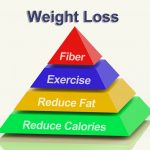Eating a balanced and nutritious meal plan is key to achieving your health goals. I’m here to help you create an eating pattern that’s tailored to meet all of your needs.
Meal planning doesn’t have to be complicated or time consuming – it can actually be fun! In this article, I’ll provide tips for building a meal plan that will give you the nutrients necessary to feel energized and healthy.
Your meals should include foods from all food groups in order to get the vitamins, minerals, antioxidants, fiber, and other essential nutrients required for optimal health. By making sure your meals are well-rounded, you’ll also reduce cravings and may even prevent overeating later on.
With just a few simple steps, you can build a balanced and nutritious meal plan that fits within your lifestyle and helps you reach your health goals.
Assessing Your Nutritional Needs
 Once upon a time, there was an individual who wanted to make sure they were eating the right foods and in the right amounts. They knew that finding balance and nutrition when it came to their meals would give them better health and help reach their goals.
Once upon a time, there was an individual who wanted to make sure they were eating the right foods and in the right amounts. They knew that finding balance and nutrition when it came to their meals would give them better health and help reach their goals.
To do so, this person realized they had to assess their nutritional needs first. This meant measuring out macro-nutrients like proteins, carbohydrates, fats, vitamins and minerals as well as making sure their diet included food from all five major food groups: grains, dairy products, fruits & vegetables, protein sources, and healthy oils & fats. Knowing how much of each nutrient should be consumed daily could inform meal planning efforts going forward.
The individual also took into account dietary restrictions or allergies; for instance if lactose intolerant then dairy products wouldn’t be part of the equation but other calcium-rich options such as green leafy veggies or fortified cereals may be used instead.
It was important to understand what worked best with personal lifestyle habit changes too – did having 3 larger meals work better than 5 smaller ones? What kind of snacks can fit in between those main courses without overloading on calories? By taking these factors into consideration initially creating balanced meals became easier!
Choosing The Right Foods
When it comes to creating a balanced and nutritious meal plan, choosing the right foods is essential. I recommend tracking calories and reading labels in order to make sure your meals are providing you with enough of the nutrients your body needs.
The first step to doing so is calculating how many calories you need each day, depending on your goals. Depending on whether you’re trying to maintain weight, lose weight, or gain muscle mass, the amount of calories will differ.
Once this number has been calculated, focus on consuming nutrient-dense foods that provide vitamins and minerals for optimal health. Here are some examples:
- Fruits & Vegetables: apples, blueberries, kale, spinach
- Grains: quinoa, buckwheat bread, oats
- Proteins: wild salmon fillets, grass fed beef burgers, lentils
- Healthy fats: avocados, nuts & seeds (almonds/pumpkin/sunflower), olive oil
In addition to checking food labels for calorie counts and macronutrients such as carbohydrates and proteins; pay attention to micronutrient profiles too. Micronutrients like calcium and iron are important for maintaining good overall health but may not be listed directly on food packaging – looking up nutritional information online can help verify these values if needed.
By following these steps when planning a balanced and nutritious meal plan tailored towards achieving your health goals; you can ensure that you’re getting all of the necessary nutrients while also staying within your daily caloric target range!
Understanding Portion Sizes
Now that you have selected the right foods, it is important to understand portion sizes. Eating too much or too little of any food can lead to health issues and impede progress toward your goals. That’s why tracking calories and practicing portion control are essential elements in a meal plan for good health.
It’s easy to underestimate or overestimate how much we eat when portions aren’t measured correctly. Therefore, it is beneficial to take time to learn about serving sizes as well as simple techniques for measuring them accurately.
Common kitchen tools like measuring cups, spoons, and digital scales make portioning out meals easier and more precise.
In addition, mindful eating practices – such as taking breaks between bites and chewing slowly – help us become aware of our hunger cues so that we don’t overindulge at mealtimes.
Understanding proper portion sizes helps ensure that we get enough nutrition while avoiding overeating; this makes it possible to meet our nutritional needs without being overwhelmed by calorie intake.
Meal Prep And Planning Tips
Meal prep and planning are essential for creating a balanced and nutritious meal plan that meets your health goals.
To start, take the time to read food labels before you make any purchases at the grocery store. Food labeling can help you understand what ingredients are in each product and how much nutrition they contain. This information helps you choose foods that fit into your meal plan and have beneficial nutrients.
When shopping, it’s important to focus on buying fresh fruits and vegetables, lean proteins like fish or chicken, whole grains such as rice or oats, low-fat dairy products, healthy fats like olive oil or avocados, nuts, seeds and legumes. Try to limit processed foods since they often lack nutritional value but may contain added sugars and sodium.
Aim to fill most of your cart with nutrient-dense items so you can easily create delicious meals throughout the week.
To save time while preparing meals, consider using kitchen gadgets such as an Instant Pot pressure cooker or multi-purpose chopper/blender combo device. These tools will cut down on cooking time so you don’t get overwhelmed trying to put together a balanced meal every night after work.
Meal prepping is also great for making sure all of your meals follow your diet guidelines – just pull out prepped food from the fridge when hunger strikes!
Implementing A Balanced Diet
Meal prepping and planning is essential to establishing the foundation for a nutritious meal plan. This process can be overwhelming at first, but with some creativity and dedication, you have all the tools necessary to build an enjoyable and balanced diet.
To stay motivated on your health journey, it’s important to keep in mind why you started this lifestyle change in the first place. Think of making healthier food choices as building blocks that create a strong tower representing your goals. Each block represents one beneficial choice – like opting for whole grain bread instead of white or adding extra veggies into your plate.
With each step forward comes progress towards becoming stronger mentally and physically, leading to sustainable success. The key is to make small changes over time rather than trying for drastic transformation overnight. In order to establish long-term behavior modification, start by setting manageable goals such as swapping out sugary snacks for fruity alternatives or drinking more water throughout the day.
Taking these smaller steps will help ensure accountability while creating lasting habits focused on reaching optimal health outcomes.
How Much Water Should I Be Drinking Every Day?
Hydration levels are an important factor in achieving your health goals.
I would recommend drinking at least eight 8-ounce glasses of water per day to stay well hydrated.
This is equivalent to 2 liters, or half a gallon.
If you lead an active lifestyle with increased sweat and urination output, then it’s important to adjust the amount of water that you’re consuming accordingly; increasing portion sizes as needed.
What Types Of Supplements Should I Be Taking?
When it comes to mindful eating, nutrient timing and supplementing your diet with the right vitamins, minerals and other nutrients can be a great way to support your overall health goals.
While there is no one-size-fits-all approach when it comes to supplements, depending on what you’re trying to achieve—from weight loss or muscle gain to avoiding deficiencies—there are some key considerations that nutritionists and registered dietitians recommend for getting the most out of supplementation.
How Often Should I Be Eating?
When it comes to eating frequency, the timing of meals and snacks is less important than your overall intake.
Eating too often or not enough can both lead to unhealthy habits.
Aim for three balanced meals each day with two to four healthy snacks in between if needed.
These snack times should be limited to no more than an hour after a meal and an hour before a meal.
It’s also important that you pay attention to portion sizes when planning out your meals; try using smaller plates as this will help you control how much food you are consuming at once.
What Are Some Healthy Snacks I Can Have Between Meals?
Snacking between meals is an important part of a balanced diet. Having healthy snacks on hand can help maintain energy, satisfy hunger and keep you from overeating later.
When choosing snacks, it’s important to pay attention to portion control and nutrition labels; look for options that are low in added sugar, unhealthy fats, and sodium.
Some great snack choices include:
- Fresh fruit or vegetables with nut butter
- Homemade trail mix with nuts and dried fruit
- Hard-boiled eggs
- Greek yogurt with granola or berries
- Air-popped popcorn sprinkled with herbs and spices
- Hummus dip with whole grain crackers or vegetable sticks.
How Can I Adjust My Meal Plan If I Have Food Allergies Or Dietary Restrictions?
When you have food allergies or dietary restrictions, it’s important to adjust your meal plan accordingly in order to avoid cross contamination.
This can be done by carefully reading ingredient labels and taking note of any potential allergens.
Additionally, consider making substitutions for certain ingredients that may not fit with your dietary needs – such as swapping out dairy milk for almond milk or using gluten-free breads instead of wheat based ones.
A nutritionist or registered dietitian can also provide insight on how to best accommodate your sensitivities while still creating a balanced and nutritious meal plan to reach your health goals.
It’s important to remember that your health goals are achievable when you plan a balanced and nutritious meal.
Eating healthy can help reduce the risk of chronic diseases, including heart disease and type 2 diabetes.
Studies have found that people who consistently eat a well-balanced diet tend to live longer and healthier lives than those who don’t.
By planning ahead and being mindful of what foods you’re consuming, you’ll be able to make smart choices during meals while also keeping track of portion sizes.
With these simple steps, you can build an effective meal plan for achieving your health goals in no time.









